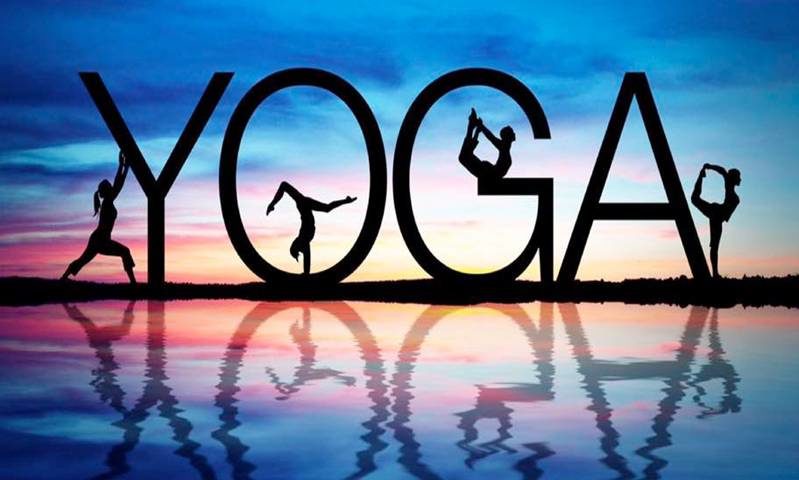
Celebrate the Guru Shikshya Parampara (Tradition) with GURU PURNIMA
July 16, 2019
Where to do a Yoga Teacher Training Course in India?
July 22, 2019This blog is written for beginners, especially those who lack awareness about the art and science of Yoga. There are several different types of Yoga. Some of the yoga styles are adapted from the ancient or the traditional scripts of Veda, while many of the forms in the modern era are innovatively modified by mixing the talents with the postures of Yoga.
Therefore, it has become crucial to help you understand and give you a list of the most common styles of Yoga, especially when the online portals have become more of a mess, and less of a legitimate platform. Hence, we have tried to cut down on your homework, by giving you the originality of Yoga with the help of basic introduction about the types of Yoga.
Most Common Yoga Styles
- Hatha Yoga
Hatha Yoga means a union of the mind, body, and soul through a discipline of the force. It is a commonly used classical form of Yoga and is the spine or the base for the Ashtanga or Iyengar yoga poses. The origins of Hatha Yoga are in the Gorakhnath in the 2nd century BCE or 5th century BCE from the sage – Patanjali.
Hatha Yoga has gained popularity in the West as a form of fitness to build and maintain strength, balance, flexibility, body relaxation, and mental concentration. The sole purpose of every asana in Hatha Yoga or any other forms is to enable one to rise above the body-consciousness. It is said that if one can sit straight with an erect spine, and completely motionless for about three hours, then they have mastered the asana. This also activates your awareness of the inner or the hidden energies in the body.
- Ashtanga Yoga
Ashtanga Yoga means ‘Eight-limbed yoga’ path, a system which is discussed in the Patanjali Yoga Sutras which are basically the guidelines for a better living, and spiritual growth. These are the methods, not beliefs, which are done by the practitioners to test and claim the benefits of Yoga.
The limbs are Yama, Niyama, Asana, Pranayama, Pratyahara, Dharana, Dhyana, and Samadhi. Generate your energy flow with this form of Yoga, and open your chakras.
- Vinyasa Yoga
Vinyasa is a smooth flow and is a broad classification which encompasses different types of Yoga like Ashtanga Yoga and Power Yoga. This particular form of Yoga stands opposite to Hatha Yoga to arrange the progression of the poses.
In this type of Yoga, each movement is synchronized with the breath, as it has the primary function and works as an anchor when you shift from one pose to another posture.
- Iyengar Yoga
This particular form is named after B.K.S Iyengar who introduced the modern style of Yoga. It is a modernized form of Hatha Yoga, and Iyengar roots for the correct adaptation of the poses with right precision, or proper adjustment and alignment techniques.
Balance your mind, body, and soul with the mystical properties of Iyengar Yoga. More emphasis on details and perfection is demanded in the practices of this pose.
- Power Yoga
Power Yoga is a general term described for the fitness-based approach to a Vinyasa style Yoga with the use of rigorous training. This type of Yoga incorporates the models and athleticism of Ashtanga Yoga which means that each class of Power Yoga is going to bring a new challenge to your strength and flexibility boundaries.
Power Yoga has become the part of the gyms and some like to even call it ‘gym yoga’. Kest and Bender Birth used the term Power Yoga to give a new identity to this intense flowing style of Yoga. Physical exercises form the spiritual and holistic foundations of this modified form of Yoga.
Gain better flexibility, more confidence, better immune system, more endurance, mental focus, and relieve tension, stress by releasing the toxins from your body with all the sweat you shed. This is probably the fastest type of Yoga which can help you lose a lot of weight.
- Yin Yoga
A slow paced Yoga where the yoga postures are held for longer periods of time. It can be done both by the beginners and the advanced yogi practitioners. Yin Yoga teaches more of patience, acceptance, growth and less of an unproductive hurry!
Paulie Zink introduced Yin Yoga. The purpose of it is to help you sit more comfortably, maybe in a meditation pose while you stretch the connective tissues of your body joints. Yin Yoga is a passive practice which involves variations, sometimes held for 2-5 minutes, involving the role of deep breaths.
These are some of the most common types of Yoga other than Kundalini Yoga, Hot Yoga, Restorative Yoga, and so on. Self-practice is the key when it comes to Yoga. So, if you are not a procrastinator, then you are going to attract positive universal energy your way which will always keep you balanced in life, no matter what the circumstances are.
Build a peaceful empire in your mind with the free-wisdom of Yoga, so that when you finally open your eyes, you are able to see the beauty everywhere!

